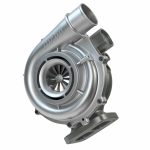In the ever-evolving world of business, efficient fleet management has become an integral part of many company’s operations. Whether it’s maintaining a fleet of delivery trucks, taxis, or service vehicles, managing a fleet requires focus, strategy, and the right use of technology. In this article, we’ll delve into the best strategies for managing fleet vehicles efficiently, focusing on the UK’s unique business landscape.
Understanding Fleet Management
Before diving into the specific strategies, it’s essential to have a clear understanding of what fleet management entails. At its core, fleet management is about overseeing and organising all aspects of a company’s vehicle fleet. This includes everything from vehicle maintenance, driver management, fuel costs, and safety regulations.
In the same genre : What are the insurance implications of installing aftermarket parts on your car in the UK?
A successful fleet manager will have a full grasp of these components and use them to make informed decisions. Fleet managers need to ensure that vehicles are well-maintained and safe, drivers are well-trained and responsible, and costs are kept to a minimum. This is where data comes in. Utilising data in decision-making is one of the key strategies in efficient fleet management. It’s not only about collecting data but understanding and translating it into actionable insights.
The Importance of Vehicle Maintenance
One of the first and most critical aspects of fleet management is vehicle maintenance. Regular maintenance checks help ensure the safety and efficiency of your vehicles, leading to cost savings in the long run.
Also to see : How to assess the reliability of car brands available in the UK for 2023?
Aside from the obvious safety reasons, keeping vehicles in good condition can also increase their lifespan and reduce the need for costly repairs or replacements. It’s important to have a comprehensive maintenance schedule that includes regular inspections for things like tire pressure, oil levels, and brake conditions. Using technology to automate these checks can be a significant advantage.
The Role of Driver Safety
Driver safety is another critical component of fleet management. Not only does this protect your drivers, but it also minimises the risk of accidents, which can lead to costly repairs, insurance claims, and potential legal issues.
Training your drivers effectively and ensuring they adhere to all safety regulations can significantly reduce these risks. It’s also advisable to implement a driver monitoring system to track driver behaviour, such as speed, braking habits, and overall driving patterns. This data can then be used to identify any issues and provide targeted training where needed.
Cost Efficiency and Fuel Management
Cost efficiency is at the heart of fleet management. Every aspect of your fleet operations, from maintenance to driver behaviour, can influence costs. One of the main cost factors for any fleet is fuel.
Proactively managing your fuel costs involves monitoring fuel consumption, choosing vehicles with good fuel efficiency, and training drivers to adopt fuel-efficient driving habits. Technology can also play a vital role in this. GPS tracking systems can help identify the most efficient routes, reducing unnecessary mileage and subsequently, fuel consumption.
Leveraging Technology
Technology has revolutionised fleet management, allowing for real-time tracking, automated maintenance reminders, fuel management, and more.
There are various fleet management software available that can provide comprehensive data on vehicle performance, driver behaviour, fuel consumption, and more. This data can be invaluable in making informed decisions and identifying areas of improvement.
For instance, telematics can be used to track vehicle location and driver behaviour. This can help identify inefficient routes or bad driving habits, leading to improved efficiency and reduced costs.
Adaptation to the UK Business Landscape
Finally, it’s important to understand the unique aspects of the UK business landscape and how they affect fleet management.
For instance, the UK has strict regulations regarding vehicle emissions. Therefore, considering environmentally friendly vehicles or electric vehicles for your fleet can not only reduce emissions but also cut down on fuel costs.
Furthermore, the UK has a diverse terrain, with a mix of urban and rural areas. This requires careful planning of routes to ensure efficiency. For instance, choosing the most efficient routes that avoid congested areas can save time and reduce fuel consumption.
Overall, managing fleet vehicles efficiently involves a combination of proactive maintenance, driver safety, cost management, effective use of technology, and adaptation to the local business environment. By implementing these strategies, you can ensure that your fleet operations are as efficient and cost-effective as possible. Remember, efficient fleet management is not just about saving costs, but also ensuring safety and adhering to regulations, which ultimately contributes to the success of your business.
Emerging Trends in Fleet Management
In recent years, technological advancements and changing regulatory environments have given rise to several emerging trends in fleet management. These trends have presented both challenges and opportunities for fleet managers who are willing to adapt and innovate.
One such trend is the increasing use of electric vehicles (EVs) in fleets. With the UK government’s commitment to reducing carbon emissions, more businesses are shifting towards adopting EVs in their fleets. While the initial cost of purchasing EVs can be high, they offer long-term savings in terms of lower fuel consumption and maintenance costs. Moreover, the government provides incentives for businesses that use EVs, which can help offset the upfront costs.
Another trend is the use of advanced management software and technology in fleet management. These include GPS tracking systems, telematics, and automated maintenance software. With these technologies, fleet managers can monitor vehicle performance, driver behaviour, and fuel consumption in real-time, allowing them to make informed decisions and implement changes swiftly.
The use of data analytics in fleet management is another key trend. By analysing data collected from vehicles and drivers, fleet managers can identify patterns and trends that can help improve efficiency and reduce costs. This could involve anything from identifying the most efficient routes to predicting maintenance needs.
Conclusion: Best Practices for Efficient Fleet Management
In conclusion, efficient fleet management goes beyond merely managing a vehicle fleet – it involves a strategic approach that encompasses vehicle maintenance, driver safety, cost efficiency, and leveraging technology. By understanding and implementing these strategies, businesses can enhance their operational efficiency and bottom line.
As part of best practices, it’s crucial to stay updated with the latest trends report in the industry and adapt to the changing landscape. With the increasing use of electric vehicles and advanced management technology, fleet managers need to be forward-thinking and embrace these changes.
Moreover, businesses should view their website as a valuable tool for communication and transparency with their clients. Posting regular updates about their fleet management efforts, safety standards, and environmental initiatives can help build trust and loyalty.
Lastly, it’s essential to remember that effective fleet management is not a one-time effort. It requires ongoing monitoring, adjusting, and improving. By staying committed to these practices, businesses can ensure their fleet operations remain efficient, cost-effective, and compliant with regulations, thus contributing to their overall business management success.
In the dynamic world of fleet management, those who can effectively combine technology, strategy, and best practices are the ones who will thrive. With the right approach, managing fleet vehicles efficiently is an achievable goal that leads to significant benefits for any business.
















